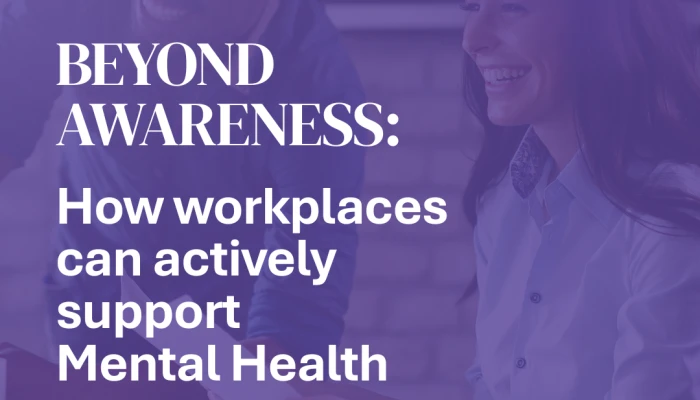When the holidays hurt: how you can support employees facing family and domestic violence
The holiday season is often portrayed as a time of joy, family gatherings, and celebration. But for many Australians, it represents something far darker. Behind closed doors, family and domestic violence incidents surge during the holidays, creating a silent crisis that ripples into workplaces everywhere.
The hidden holiday crisis in Australia
The statistics are sobering. Victorian data shows family incidents tend to be more frequent in December and January compared to most other months. In Queensland, police saw a 32 per cent increase in family and domestic violence-related calls over the Christmas to New Year period in one recent year. Perhaps most alarmingly, in Victoria, the average number of recorded family violence incidents rose by 33 per cent on Christmas Day alone .
Research indicates that New Year's Day is the most dangerous day of the year for domestic-related assaults in New South Wales, with incidents reaching 118 per cent higher than usual. The peak time for all assaults occurs in the first three hours of the new year, between midnight and 3am.
The combination of the Australian summer holiday season creates a perfect storm: financial stress from gift-giving during a cost-of-living crisis, increased alcohol consumption, extended time together due to workplace closures, increases the risk of violence and aggression.
For some victims, the workplace may be one of the few places they feel relatively safe—a respite from the tension at home. Yet the isolation of holiday closures and the emphasis on family togetherness can trap them in situations with fewer escape routes.
The broader picture
Domestic and family violence isn't just a holiday issue—it's a persistent crisis affecting Australian workplaces year-round. One in six Australian women and one in 16 men have experienced physical or sexual violence by a current or former partner since the age of 154. Indigenous Australians are 32 times more likely to be hospitalised for family violence than non-Indigenous people.
Why this matters to employers
Domestic violence isn't just a private matter—it has profound workplace implications. Family and domestic violence is acknowledged as a workplace issue, and employers have both legal obligations and moral responsibilities to support affected employees.
Employees experiencing abuse may struggle with:
- Decreased productivity and concentration due to trauma and stress
- Increased absenteeism from injuries, court appearances, or simply being prevented from leaving home
- Safety concerns if an abuser shows up at the workplace
- Financial instability when abusers control their access to money
- The holidays amplify these challenges. An employee who might normally find respite at work suddenly faces extended time at home during office closures, with limited access to support systems.
Legal obligations for Australian employers
- Australian employers have specific legal responsibilities under the Fair Work Act 2009 and Work Health and Safety laws:
- National Employment Standards
- All employees—including full-time, part-time, and casual workers—are entitled to:
- 10 days of paid family and domestic violence leave per year (this entitlement was strengthened in 2023)
- The right to request flexible work arrangements to deal with the impact of family and domestic violence
What employers can do
Train leaders and P&C teams
- Equip your leaders to recognise potential warning signs and respond appropriately:
- Frequent unexplained absences
- Visible injuries with vague explanations
- A partner who excessively monitors their communications or visits the workplace inappropriately
- Sudden financial difficulties
- Noticeable changes in behaviour or mood, particularly around holidays
- Requests to change contact details or not be listed in staff directories
- Managers should know how to have sensitive conversations, maintain confidentiality, and connect employees with appropriate resources.
Communicate support before holiday closures
- A simple reminder email before holiday closures about available support services Include:
- Information about the 10 days paid leave entitlement
- Ensure managers know how to respond if employees reach out during holidays
- Consider keeping some flexible communication channels open
- Plan for employees who may need to return to work earlier than scheduled if home becomes unsafe
- Review and update safety plans before extended closures
Remind employees of support available
- Employee Assistance Program (EAP) details
- 1800 RESPECT (1800 737 732) - available 24/7
- Local domestic violence services
- Emergency services (000)
Make it clear that employees can access support without fear of judgment or job loss.
Reminder on Flexible Work arrangements
- Consider allowing employees to:
- Work in the office, if it's safer than being home (or vice versa)
- Adjust their schedules for court dates, meetings with lawyers, or housing searches
- Take leave without extensive explanation
- Modify start and finish times to avoid dangerous periods
- Work from a different location if needed for safety
Ensure confidentiality
- Confidentiality is critical.
- Use 'Other' categories in leave management systems that don't specify domestic violence leave
- Ensure domestic violence leave doesn't appear on payslips
- Keep all records securely according to privacy policies
- Limit information sharing to those who absolutely need to know for safety reasons
- Obtain the employee's consent before sharing information, except in
The bottom line
Acknowledging that family and domestic violence affects your employees—especially during the holidays—isn't just compassionate; it's good business practice. By creating a workplace culture that takes family and domestic violence seriously and provides genuine, practical support, you're not only potentially saving lives but also building a stronger, more resilient organisation.
Resources:
- 1800RESPECT (1800 737 732) - 24/7 telephone, online chat and video counselling for anyone experiencing or at risk of family, domestic and sexual violence
- Emergency services: 000 (police, ambulance, fire)
- Lifeline: 13 11 14 or online chat
- MensLine Australia: 1300 78 99 78
- Safe Steps (Victoria): 1800 015 188
- DV Connect (Queensland): 1800 811 811
- Men’s referral Service: 1300 766 491
- No to Violence:
- Fair Work Ombudsman: 13 13 94
References:
https://www.crimestatistics.vic.gov.au/crime-statistics/latest-victorian-crime-data/family-incidents-2
https://mypolice.qld.gov.au/brisbanecentral/2023/12/22/domestic-and-family-violence-around-the-holidays/
https://boscar.nsw.gov.au/documents/publications/bb/bb151-200/BB174-Report-assaults-over-public-holidays.pdf
https://noviolence.org.au/wp-content/uploads/2018/09/Whataboutmen.pdf
Fair Work Act 2009 (Cwth)
www.fairwork.gov.au/leave/family-and-domestic-violence-leave
https://www.aihw.gov.au/getmedia/c0e5bdde-e9c4-4a1f-808e-256191835cde/ctgc-rs37.download%20pdf.aspx#:~:text=National%20survey%20data%20shows%20that,expanded%2C%20especially%20in%20Remote%20areas.


